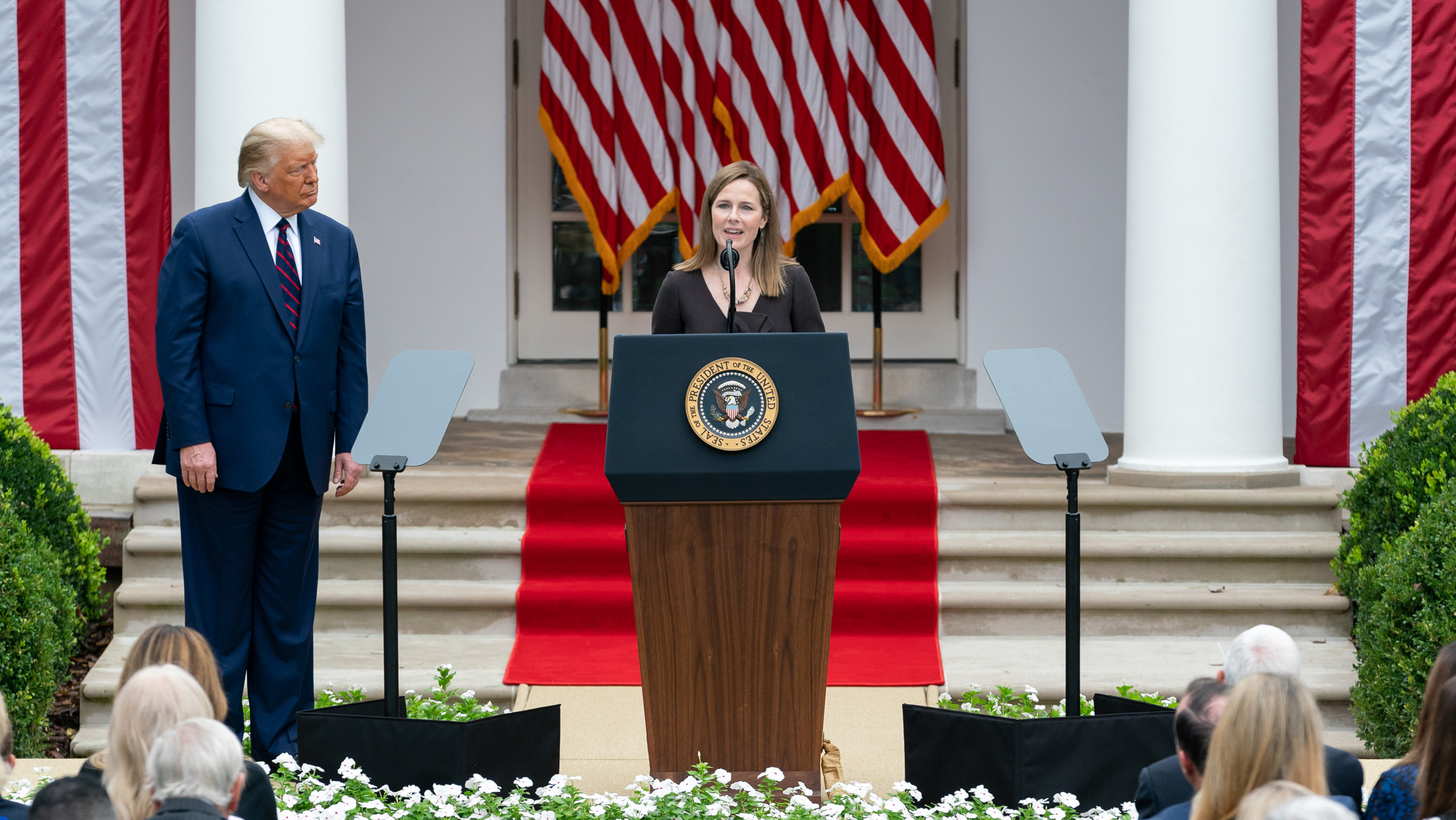Barrett Nomination Heads to Senate
Democrats boycott the vote

The smarter way to stay on top of the multichannel video marketplace. Sign up below.
You are now subscribed
Your newsletter sign-up was successful
The Senate Judiciary Committee has voted unanimously 12-0 to advance the nomination of Judge Amy Coney Barrett to the Supreme Court to a full senate vote, which has been scheduled for Oct. 26.
It was only unanimous because the Democratic members boycotted the hearing and, in a little political theater that took a page from sports venues, put in their places life size pictures of people reportedly dependent on the Affordable Care Act, which they fear an Associate Justice Barrett would help overturn in an upcoming case.
In fact, while the vote was announced as 12 yays and 10 nays, chairman Lindsey Graham (R-S.C.) said it would be recorded as a unanimous vote.
Sen, John Cornwyn (R-Texas) said the Democratic boycott was "all for show" and an attempt to "capture a narrative that is false." He called it surreal that the other side had boycotted one of the most important votes the committee would hold.
Barrett could well help shift the Supreme Court’s view of how much deference to give decisions by agencies like the Federal Communications Commission. She has also signaled she would keep an open mind about cameras in the court.
Related: Justice Thomas Has Issues with Sec. 230
She also has issues with courts overly expanding on legislative language, as critics of Sec.230 have said is the case with that statute. When asked at her confirmation hearing about Section 230, she would not address the specific issue, but did weigh in, in general, on what she thought the "danger" was of courts departing from statutory text and substituting their own judgment, she weighed in.
The smarter way to stay on top of the multichannel video marketplace. Sign up below.
Barrett said that without respect to Sec. 230, the danger of courts going beyond the language of statute was that it "subverted the will of the people." She said that since judges are not elected and serve for a lifetime, if they misconstrue or bend statutes to their idea of what would be good public policy, then it deprives the people of the chance to express the policies that they want through the democratic process."
Contributing editor John Eggerton has been an editor and/or writer on media regulation, legislation and policy for over four decades, including covering the FCC, FTC, Congress, the major media trade associations, and the federal courts. In addition to Multichannel News and Broadcasting + Cable, his work has appeared in Radio World, TV Technology, TV Fax, This Week in Consumer Electronics, Variety and the Encyclopedia Britannica.

